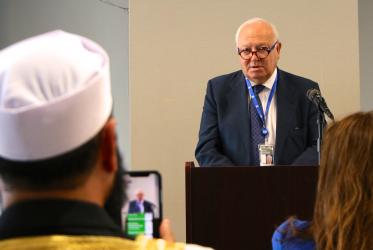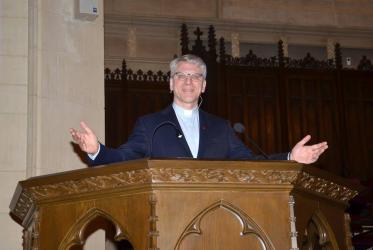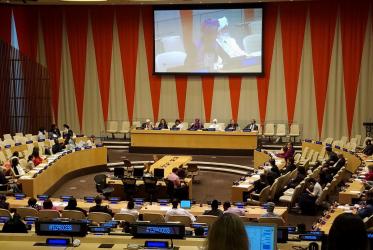Displaying 1 - 17 of 17
Worshipping safely: UN, faith communities unite to prevent violence
20 September 2019
Peacemakers at work in Sri Lanka
29 April 2019
WCC general secretary: “We believe in God’s love”
31 March 2019
Religious leaders as agents of peace in the Americas
02 March 2016
Symposium focuses on religion, violence, extremism
04 February 2016
WCC encourages churches to pray on Hiroshima Day
06 August 2015
Indigenous faith leaders reflect on resilience and climate change
23 September 2014













